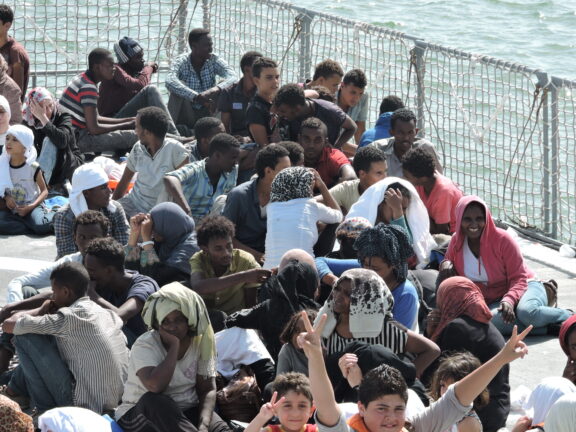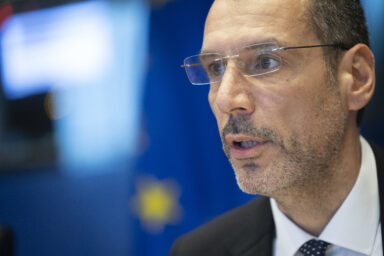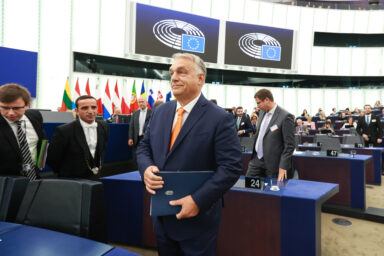The European Parliament saw heated discussion on Wednesday as the European Commission released its first annual report on migration, identifying member states under “migratory pressure” and proposing a new Solidarity Pool to support them.
At the centre of the debate was the EU’s new Annual Migration Management Cycle, a new yearly mechanism to track migration trends, assess pressures on individual countries, and coordinate support. Member states can contribute by relocating asylum seekers, providing financial assistance, or offering operational and technical help.
Commissioner, Danish minister share similar outlook
The session, attended by the Commission and the Danish EU Council Presidency, marked the first major test of the bloc’s Pact on Migration and Asylum. Denmark’s Minister for European Affairs, Marie Bjerre, stressed the need for improved readiness “across all member states”.
Commissioner for Internal Affairs and Migration Magnus Brunner said: “The initiatives that the Commission is putting forward today, on the first Annual Migration Management Cycle, actually do exactly this: they create an instrument for member states to support each other as part of one European Union that face challenges together. Regarding the Solidarity Pool, I want to make one important point: I know that all member states are affected by the migration, but one way or another all countries will also benefit from the provisions.”
Despite the optimism from the Danish Presidency and the Commission, debate in Parliament was heated. Some MEPs highlighted the benefits of a predictable, collective system for managing migration, while others questioned whether it would sufficiently address irregular migration and enforce returns effectively. Others swerved to more knee-jerk political responses, warning of migrants breaking the law being sent home immediately and without exception.
You might be interested
Report shows mixed trends
The Commission’s report provides a broad overview of asylum, migration, and reception across the EU. Illegal border crossings fell by 22 per cent between in the first ten months of 2025, helped by strengthened cooperation with partner countries. But challenges remain, including irregular arrivals, unauthorized movements within the EU, ongoing hosting of Ukrainian refugees, and external pressures from Russia and Belarus.
While member states are making progress toward full implementation of the Pact by June 2026, the Commission stressed that reforms need to accelerate.
Who will receive support?
The report identifies Greece and Cyprus as under migratory pressure due to disproportionate arrivals, while Spain and Italy face challenges following search and rescue operations at sea. These four countries will be eligible for full support from the Solidarity Pool once the Pact is in force.
Other member states, including Belgium, Bulgaria, Germany, Estonia, Ireland, France, Croatia, Latvia, Lithuania, the Netherlands, Poland, and Finland, are considered “at risk” and will have priority access to technical or operational support. Countries experiencing cumulative pressures, such as Bulgaria, Czechia, Estonia, Croatia, Austria, and Poland, may request partial or full reductions in contributions to the fund.
The initiatives that the Commission is putting forward today (…) create an instrument for member states to support each other as part of one European Union. – Magnus Brunner, Commissioner for Internal Affairs and Migration
The Solidarity Pool allows contributions that match each country’s capacity, and once the Council agrees on the pool’s size and obligations, contributions become legally binding. The Pact also includes protections for member states if systemic issues are identified in a country under pressure, with scheduled reviews in July and October 2026.
Henna Virkkunen, Executive Vice-President for Tech Sovereignty, Security and Democracy, said the system ensures member states “receive the support they need while taking responsibility for protecting external borders and speeding up asylum and return procedures.”
A milestone for the EU
The launch of the Annual Migration Management Cycle and the first annual report represents a significant step in balancing solidarity with responsibility. As full implementation approaches in 2026, the coming months will test whether the tools can deliver a predictable, humane, and effective system for managing migration across the bloc.
Debate in Parliament is expected to continue as MEPs weigh both the opportunities and challenges of enforcing solidarity and responsibility among member states.











